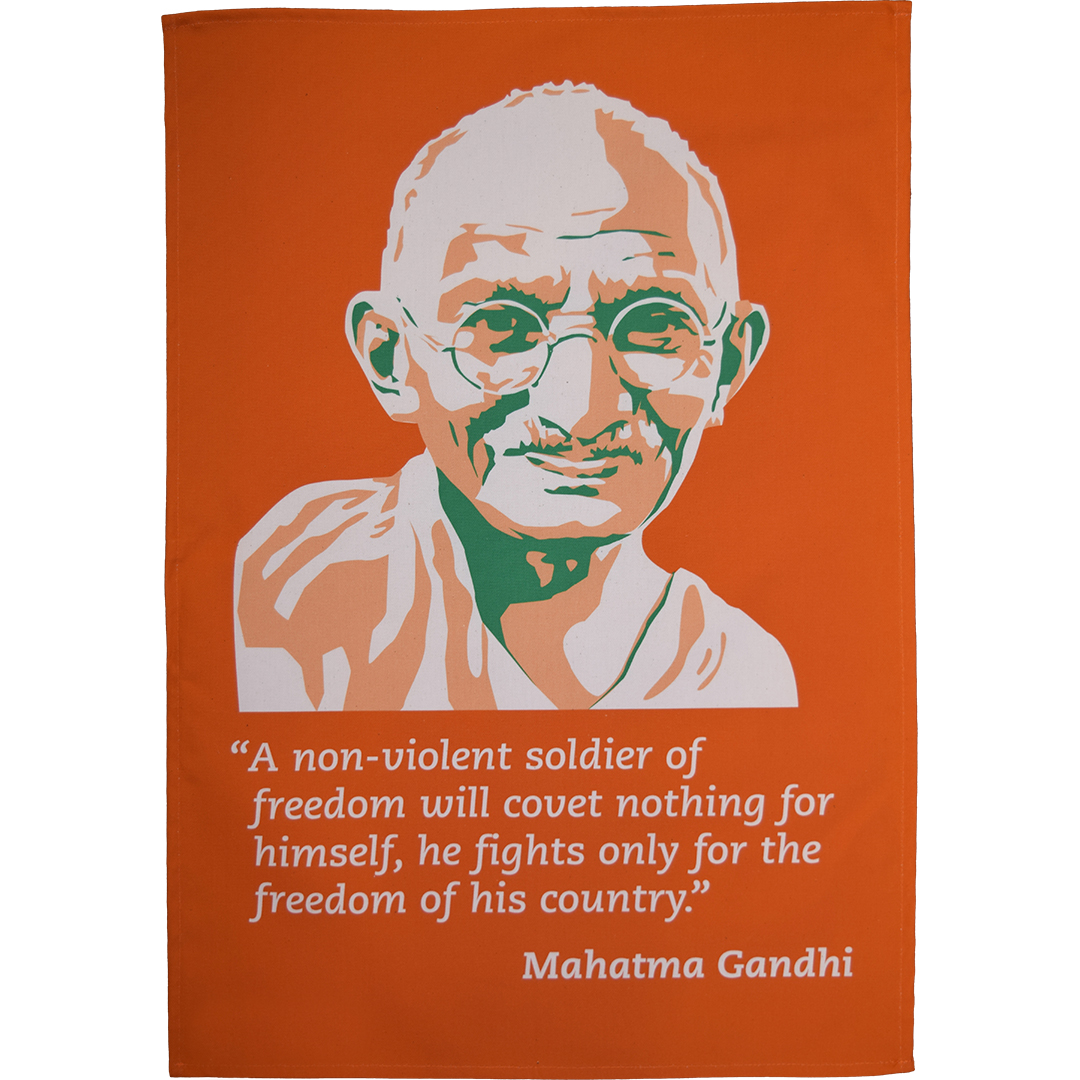We use cookies to make your shopping experience better. By using our website, you're agreeing to the collection of data as described in our Privacy Policy.
Annie Besant: Socialist, Suffragist, Anti-colonialist
Born on this day in 1847, Annie Besant backed every radical cause going in the late 19th century
In December 1917, an Anglo-Irish woman from London briefly became President of the Indian National Congress.
Annie Besant – who had recently turned 70 – was one of the great radicals of her age.
She had worked alongside
Eleanor Marx, Emmeline Pankhurst, George Bernard Shaw, William Morris, Gandhi… the list goes on and on and on.
Yet Annie Besant remains too little remembered.
Annie Besant supported and publicised the Matchgirls and their campaign for better working conditions (she's shown in this design behind the women)
See the Matchgirls' Strike tea towel
Besant was born on this day in 1847 to an Irish Catholic mother and an Englishman who had studied medicine in Dublin.
Born Annie Wood, she grew up in England, marrying an Anglican cleric called Frank Besant in December 1867.
They had two daughters, but the marriage didn't last. Part of the reason was that in 1873 Annie began to seriously question her Christian upbringing.
Religious scepticism marked her first foray into radical politics.
Victorian England was a censored society, and the limits of acceptable speech were drawn by overpowerful churchmen.
Much of what now passes as good social policy was literally illegal to suggest.
So, when Besant helped publish an American book advocating birth control in 1877, she was prosecuted under the Obscene Publications Act.
Besant's court case became a focal point for free speech and secularist campaigners in Britain.
Annie Besant in our new pack of International Labour Movement playing cards
Browse the new Labour Movement playing cards
In this period of her life, Besant was a radical individualist. She resisted overreach by Church and State in order to defend individual liberty.
But during the 1880s, Annie Besant became a socialist.
Like many radicals in England, she found inspiration in the militancy and courage of the working class.
Besant became a close ally of Eleanor Marx,
William Morris, and George Bernard Shaw. She joined the socialist Fabian Society and the Marxist Social Democratic Federation.
Besant joined the Social Democratic Federation, Britain's first socialist party (the above design for the membership card came from William Morris)
See the Liberty, Equality, Fraternity tea towel
Besant also linked her struggle for the emancipation of the working class to the anticolonial struggle of her mother's people in Ireland.
She supported the growing
Irish Home Rule movement in its struggle against British imperialism.
The socialist and anticolonial threads of Besant's radical politics became entwined in Victorian London, where much of the exploited working class were actually first-generation Irish immigrants, oppressed as both workers and colonised foreigners.
Besant was due to speak to workers in Trafalgar Square about socialism and Irish liberation on 13th November 1887 when the police attacked, killing several. The day became known as
Bloody Sunday.
Undaunted, Besant was active in the East End
Matchgirls' Strike of 1888, and the London Dock Strike of 1889.
Radical campaign in the 1880s? You name it, Besant was there.
See the London Dock Strike tea towel
She was also involved in the early
women's suffrage movement in London, working with Emmeline Pankhurst and Millicent Fawcett.
There wasn't a radical cause Besant didn't support.
But then, in 1889, she began to embrace a new religious and philosophical movement among Western intellectuals called Theosophy, which blended elements of so-called 'Eastern' cultures into a new, spiritualist worldview.
Whereas many others found immense spiritual and moral fulfilment in the labour movement and socialist politics, Besant now felt changed.
She decided that socialism in Britain was too materialistic, and incompatible with her new Theosophical beliefs.
This wasn't the end of her radical career, though.
Besant moved to British-ruled India in the 1890s, but she didn't limit herself to religious work.
Instead, she denounced British colonial rule as she had done in Ireland.
"India is not ruled for the prospering of the people, but rather for the profit of her conquerors…"
In 1914, when the British government declared war on Germany, Besant began to demand Indian self-government.
Working with Indian anticolonial organisers, she formed the All India Home Rule League. This was one of the first India-wide political parties to demand an end to British rule.
When Besant was arrested by the colonial authorities in 1917, thousands demanded her release, including
Gandhi and Jawaharlal Nehru.
Besant gained the support of Gandhi and Nehru when she was arrested by colonial authorities
The British government backed down, releasing Besant and making vague promises of devolution.
To honour her, the Indian National Congress elected Besant as its President.
Annie Besant would spend the last decade of her life in India, continuing to demand independence.
She was no longer the labour radical she'd been in the 1880s, and she had ditched the secularist movement, too.
But throughout her ideological shifts and global travels, Annie Besant never lost her radical edge.
Whether for freedom of speech, socialism, women’s suffrage, or anticolonialism, she was always willing to risk it all to make the world a better, more meaningful place.








